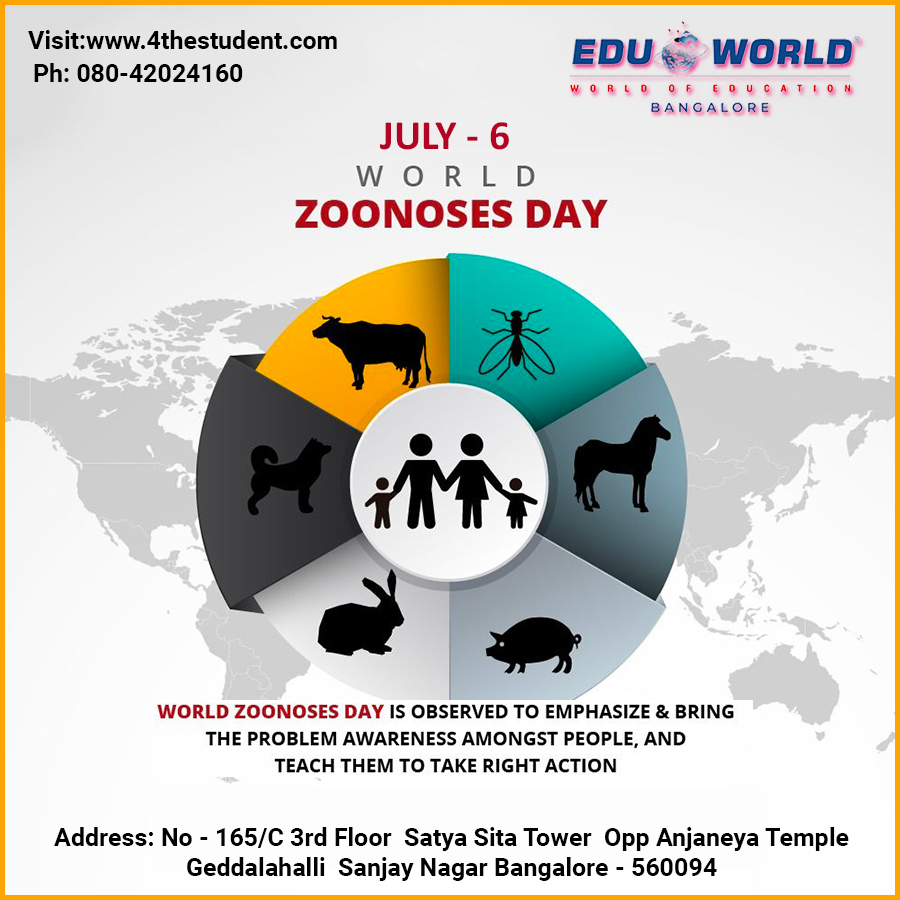World Zoonoses Day, which is celebrated annually on July 6th to honour the first immunisation against a zoonotic illness like Avian Influenza, West Nile Virus or Ebola is observed. On July 6, 1885, French biologist Louis Pasteur gave the first dose of the first vaccination against the zoonotic disease’s rabies. A zoonosis is an infectious disease that has jumped from non-human animals to human. Zoonotic pathogens may be bacterial, viral or parasitic, or may involve unconventional agents and can spread to humans through direct contact or through food, water or the environment. They represent a major public health problem around the world due to our close relationship with animals in agriculture, as companions and in natural environment. Zoonoses can also cause disruptions in the production and trade of animal products for food and other uses. Zoonoses comprise a large percentage of all newly identified disease as well as many existing ones. Some diseases such as HIV, begin as a zoonosis but later mutate into human-only strains. Other zoonoses can recurring disease outbreaks, such as Ebola virus disease and salmonellosis. Still others such as the novel coronavirus that causes COVID-19, have the potential to cause global pandemics. Zoonotic diseases are a major public health problem in India. Plague has killed nearly 120 lakhs people since 1898. Rabies continues to be a serious health problem in the country. Approximately 20,000 deaths are estimated to occur every year while more than 17 lakhs persons bitten by suspected rabid animals seek anti rabies vaccination at rabies treatment centres. Typhus killed many people during World War one. Brucellosis alone is estimated to cause annual loss of 30 lakhs man days in addition to an annual economic loss of Rs.2400 lakhs through brucellosis in cattle and buffaloes. Japanese encephalitis is another emerging zoonotic disease in India causing several outbreaks and considerable morbidity and mortality. Studies on reservoir of this disease are yet in conclusive, Kala-azar although proved zoonotic disease all over the world, continues to be non-zoonotic in India in spite of the epidemiological evidence suggesting it to be zoonotic. It is not surprising that in India where approximately 80% of population lives in rural areas in close contact with large domestic animal population abundance of vectors because of suitable climate, low socio-economic conditions and lack of proper medical care, zoonotic disease assume great public health significance. However, because of inadequate diagnostic facilities, unfamiliarity of physicians with these diseases and lack of co-ordination between physicians, veterinarians and epidemiologist, the extent of their existence is obscured. Edu World believes in the clear and actionable guidance for safe operations through the prevention, early detection and control. Edu World spreads awareness and adequate information about such disease and effectively break the chain of transmission.




